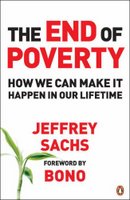Future generations will hear far more about God and politics
 The commercial success of Richard Dawkins's God Delusion may perhaps be owing to readers in Utah keen to burn it. However, it surely also signifies the mobilisation of local secular opinion around his double helix-emblazoned standard.
The commercial success of Richard Dawkins's God Delusion may perhaps be owing to readers in Utah keen to burn it. However, it surely also signifies the mobilisation of local secular opinion around his double helix-emblazoned standard.Because Britain has suffered less from anti-clericalism than continental Europe, much of the argument about faith in this country is of the God-bothering variety. However, there are worrying signs that this quaint Victorian-style debate between dons in tweed and men of the cloth is having a wider impact.
A poll published today by the new think tank Theos reveals public confusion. If 42 per cent of a thousand adults agree with Dawkins that religion is like "the smallpox virus but harder to eradicate", 53 per cent claim that "religion is a force for good in society", with a slightly higher percentage agreeing that Christianity had an important role to play in public affairs.
Encouragingly, Michael Nazir-Ali, the Bishop of Rochester, has forthrightly attacked the notion that Britain is a "multi-faith society", saying: "Almost everything you touch in British culture, whether it's art, literature or the language itself has been shaped by the Judaeo-Christian tradition, by the Bible, by the Churches, worship and belief."
Today's inauguration of Theos is an encouraging sign that intellectual Christians in Britain are not going to flee the battle that militant secularists have long declared, as can be seen from Owen Chadwick's Secularisation of the European Mind, which deals with their campaigns in the 19th century.
There is something encouragingly American about Theos, provided one associates US Christians with its many distinguished public intellectuals, like Richard John Neuhaus or George Weigel, rather than the literalists of dread imaginings.
And how revealing that it is a new think tank, rather than the limp-wristed universities with their cadres of Islamist militants, that has ventured into these contentious areas.
Supported by the Anglican and Roman Catholic primates, Theos will not confine itself to locking horns with academe's celebrity atheists, nor will it simply react to provocations (overwhelmingly involving radical Islamists) that appear to discredit all faith.
Rather, in a brilliant exposition of Theos's remit, entitled Doing God, Nick Spencer indicates that the very notion of a separate public sphere, or what we call civil society, is an indirect offspring of Christian rejection of imperial theocracy, and that Christians have much still to contribute to their own legacy.
Indeed, whether for demographic reasons, which over the long term favour religious believers, or, because of the creeping withdrawal of the state from social provision, future generations will hear a lot more about God and politics.
Spencer makes short work of many arguments routinely used to excise religion from the public sphere, a goal that is utterly ahistorical in a country where the Sovereign is head of the Established Church and daily prayers are said in Parliament.
In Britain, Spencer argues that the withdrawal of the state from welfare provision will reveal a "long-hidden shore of civil society, in which religious groups in general, and the Churches in particular, have and are playing a significant role".
There are some 22,000 religious charities in this country, not to speak of parish or chapel-based voluntary work...
More







<< Home